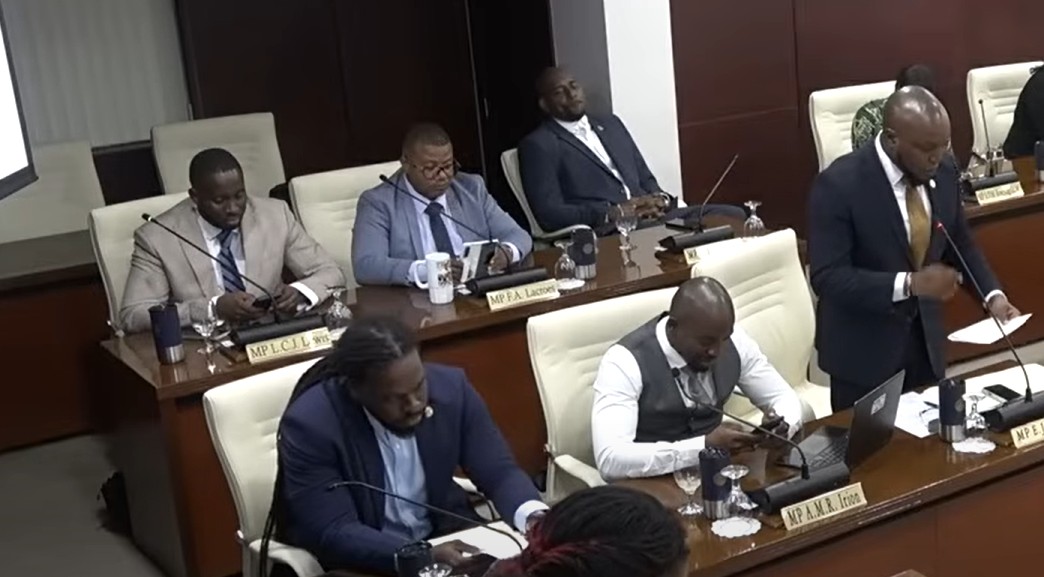PHILIPSBURG:--- NorthSouthNet, publisher of St. Maarten Hospitality & Trade Association (SHTA) in-room VISIT Magazine in partnership with e-group communications, this month symbolically launched a new Meetings & Incentives, Conferences & Exhibition Campaign at the befitting historical location of "Pasture Piece". The monumental outside event space in the Cul-de-Sac Valley is considered part of the target group to benefit from the new campaign to highlight St. Maarten in the world of corporate event planners.
The 2025 "VISIT" edition dedicated a special on the important Meetings, Incentives, Conferences and Exhibitions (MICE) industry topic, sowing the seeds for the campaign kicking off last week. SHTA and VISIT St. Maarten / St. Martin Magazine by NorthSouthNet try to contribute to the success of the destination where it sees opportunities on a yearly basis. VISIT Magazine, amongst others, contributes to a yearly advertisement campaign in the newspaper USA Today.
The campaign consists of 40,000 e-mails sent to screened and susceptible operators, agents, and media in the meetings, incentives, conferences, and exhibitions (MICE) Industry in the "E-Group" network. About half of St. Maarten's hotels have one or more dedicated spaces for executive retreats, trainings, workshops, and/or conferences and are expected to benefit greatly from this exposure. Hotels participating in the campaign have, over the past months, tailored their own campaigns, which commenced over the past weeks.
 PHILIPSBURG:--- The Police Force of Sint Maarten (KPSM) would like to express its sincere gratitude to the general public of Sint Maarten and the surrounding islands for their invaluable assistance in the ongoing investigation into a shooting incident that took place in the Middle Region area on April 30, 2025.
PHILIPSBURG:--- The Police Force of Sint Maarten (KPSM) would like to express its sincere gratitude to the general public of Sint Maarten and the surrounding islands for their invaluable assistance in the ongoing investigation into a shooting incident that took place in the Middle Region area on April 30, 2025. PHILIPSBURG:--- The Minister of Finance, Hon. Ms. Marinka J. Gumbs, is pleased to announce that on September 24, 2025, the Stichting Overheidsaccountantsbureau (SOAB) submitted its Annual Accounts for 2024 to the Minister.
PHILIPSBURG:--- The Minister of Finance, Hon. Ms. Marinka J. Gumbs, is pleased to announce that on September 24, 2025, the Stichting Overheidsaccountantsbureau (SOAB) submitted its Annual Accounts for 2024 to the Minister. PHILIPSBURG:--- The United People’s Party (UPP), The National Alliance (NA), and Nation Opportunity Wealth (NOW) factions sent an official letter via Parliament calling on Minister of Finance Marinka Gumbs to immediately retract her controversial nomination of Chairman of the Supervisory Board of the Central Bank of Curaçao and Sint Maarten (CBCS).
PHILIPSBURG:--- The United People’s Party (UPP), The National Alliance (NA), and Nation Opportunity Wealth (NOW) factions sent an official letter via Parliament calling on Minister of Finance Marinka Gumbs to immediately retract her controversial nomination of Chairman of the Supervisory Board of the Central Bank of Curaçao and Sint Maarten (CBCS). PHILIPSBURG:--- The spotlight is set to shine on the stage of the Philipsburg Cultural Center on September 27th at 07.30 SHARP as the highly anticipated production godguys comes to life. This powerful stage play, produced in partnership with uNiqu’ Arts and EX3, is recognized for its long-standing commitment to a movement where storytelling meets advocacy. The event will be hosted by our very own King Vers, a talented musician, artist, and actor who has crossed borders with his multiple talents and creative way of being a true ambassador to our island.
PHILIPSBURG:--- The spotlight is set to shine on the stage of the Philipsburg Cultural Center on September 27th at 07.30 SHARP as the highly anticipated production godguys comes to life. This powerful stage play, produced in partnership with uNiqu’ Arts and EX3, is recognized for its long-standing commitment to a movement where storytelling meets advocacy. The event will be hosted by our very own King Vers, a talented musician, artist, and actor who has crossed borders with his multiple talents and creative way of being a true ambassador to our island.